Honour Roll
2007 Honorary Degree Recipients and Professors Emeriti
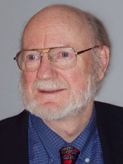
William C. Campbell
Doctor of Science
Friday, May 25, 2:30 p.m.
Faculty of Agricultural and Environmental Sciences (Macdonald campus)
Armed with a passion to make the world a better place, William C. Campbell has broken new ground in the ongoing fight against parasitic diseases in humans, animals and plants. One of his greatest triumphs was in developing Ivermectin, a drug that can treat parasitic infections in livestock, and river blindness, a disease transmitted by black flies that affects millions of people around the world. An accomplished poet, essayist and artist, he is also a member of the National Academy of Sciences.
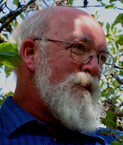
Daniel Dennett
Doctor of Science
Monday, May 28, 10 a.m.
Faculty of Science "A"
Renowned for his fearless exploration into the mysteries of the mind, Daniel Dennett is considered one of the preeminent philosophers of his generation. During Dennett's remarkable career, he has tackled fundamental questions of the nature of thought, consciousness and whether there is a soul. His far-reaching influence in the realm of evolutionary theory has informed the subsequent research of many of the world's leading experimental biologists, cognitive psychologists and neuroscientists. Among his many honours, Dennett has been awarded two Guggenheim fellowships and one Fulbright. He is a member of the American Academy of Arts and Sciences.
Robert J. Zamboni
Doctor of Science
Monday, May 28, 7 p.m.
Faculty of Science "B"
Millions of asthmatics around the world breathe easier thanks to the work of Robert J. Zamboni. Recruited by Merck Frosst Canada upon completion of his postdoctoral work, Zamboni went on to become a senior medicinal chemist for the company. During this time he led the team that would discover and develop the first once-a-day oral asthma medication, a life-changing breakthrough for people afflicted with the condition. For his efforts, the Quebec government awarded Zamboni the Prix Lionel-Boulet in 1999 and the government of Canada followed with the Prix Galien in 2000. In 2003, the McGill alumnus was named one of the Heroes of Chemistry by the American Chemical Society.
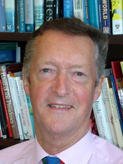
Sir John Daniel
Doctor of Letters
Monday, May 28, 7:00 p.m.
Centre for Continuing Education
Although Sir John Daniel wasn't knighted by Queen Elizabeth until 1994, he has been slaying the dragon of academic inaccessibility much of his adult life. After earning an undergraduate degree in metallurgy from the University of Oxford, Sir John had a "conversion experience" during a 1972 internship, when he witnessed firsthand the power and potential of distance education. As an education reformist, Sir John believes that accessibility to education allows people to improve their day-to-day lives while broadening their world view. He has served as vice-president of Athabasca University, vice-rector of Concordia University, president of Laurentian University and vice-rector of the UK's Open University. He is president and CEO of the Commonwealth of Learning.
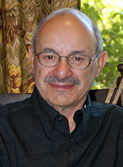
Les Vadasz
Doctor of Science
Tuesday, May 29, 10 a.m.
Faculty of Engineering
Les Vadasz will be enjoying his own personal homecoming at Convocation. Earning a BA in Electrical Engineering from McGill in 1961, Vadasz went on to co-found the computer giant Intel Corporation a mere seven years later. Although he would go on to assume many administrative roles at Intel, he never strayed too far from his first love, engineering. Ever the innovator, Vadasz was instrumental in the development of many of Intel's advancements in micro-processing and computer memory. In his pursuit of enhancing our capacity to benefit from computer technology, Vadasz has served on a variety of advisory panels, including the National Research Council's Computer Science and Telecommunications Board and Bill Clinton's Presidential Advisory Committee for Information Technology.
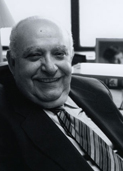
Adel Sedra
Doctor of Science
Tuesday, May 29, 10 a.m.
Faculty of Engineering
Adel Sedra literally wrote the book on micrelectronics. His seminal 1982 textbook, Microelectronic Circuits has been translated into 10 languages and has sold more than 800,000 copies. His work has helped pave the way for the evolution and refinement of such modern electronic staples as television and cell phones. But Sedra is as dedicated to the inner workings of universities as to adaptive integrated filters, as witnessed by his years at the University of Toronto where he distinguished himself vice-president, provost and chief academic officer before becoming Dean of the Faculty of Engineering at the University of Warterloo in 2003.
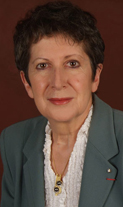
Lise Bissonnette
Doctor of Letters
Wednesday, May 30, 10 a.m.
Faculty of Education
One of the preeminent journalists and political commentators of her generation, Lise Bissonnette is also one of the most courageous. Few Quebeckers will forget the 1995 sovereignty referendum when Bissonnette, then publisher of Le Devoir, wrote an editorial in support of the Yes side, making hers the only paper in Canada to back the independence option. In 1998, she was named first president and director general of the Bibliothèque et Archives nationales du Québec. Bissonnette was elected a member of the Academy of Letters and the Social Sciences of the Royal Society of Canada in 1994 and to the Canadian Journalism Hall of Fame in 1996. An officer of the Ordre national du Québec, Bissonnette is also a member of the Académie des lettres du Québec.
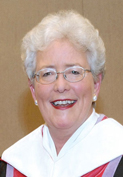
Marcia Boyd
Doctor of Science
Tuesday, May 29, 2 p.m.
Health Sciences—Faculties of Medicine and Dentistry
Not many Honorary Degree recipients can say that they started their career commuting by dog sled. Considered one of the world's top dental educators, Marcia Boyd's career path originally took her far away from the immaculate offices of a major urban center as she served communities above the Arctic Circle, where she often improvised, using portable dental equipment and a table lamp. From these humble beginnings, Boyd became one of the world leaders in dental education. She has served as the chair of the Women's Advisory Committee of the American Dental Education Association, a member of the International Women's Leadership Program Committee and was the founding president of the Educational Research Group of the International Association for Dental Research.
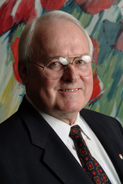
Marcel Desautels
Doctor of Laws
Wednesday, May 30, 2 p.m.
Desautels Faculty of Management
As a law student at the University of Manitoba, Marcel Desautels supported himself, in part, as an opera singer. Now the president and chief executive officer of the Canadian Credit Management Foundation (CCMF), Desautels no longer has to sing for his supper. On top of being one of Canada's most successful business leaders, Desautels is also one of its most philanthropic, making a name for himself in particular in his support of higher education across the country. In 2005, his $22 million donation to McGill's Faculty of Management marked one of the largest donations ever made to a business or management faculty in Canada.
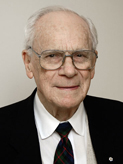
Robert G.E. Murray
Doctor of Science
Tuesday, May 29, 2:00
Health Sciences — Faculties of Medicine and Dentistry
Another McGillian closing a circle, Robert G.E. Murray finds himself back where he graduated, in 1943, from McGill's Faculty of Medicine. Rather than practicing medicine, however, Murray chose to pursue a career in bacteriology and immunology at the University of Western Ontario. In 1949, Murray was appointed head of the Department of Bacteriology, a position he held for a quarter century. As a scientist, Murray's work helped put Canadian microbiology on the international map, blazing a trail in bacterial cytology and in the use of thin-section electron microscopy for analysis of microbial structure. He has been decorated with the Coronation Medal, the Centennial Medal and the Queen's Jubilee Medal, and was named an officer of the Order of Canada in 1998.
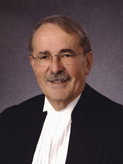
Jean-Louis Baudouin
Doctor of Laws
Friday, June 1, 10 a.m.
Faculty of Law
Whether he's in the courtroom or in the classroom, Justice Jean-Louis Baudouin has always been a trailblazer. Baudouin, a graduate of McGill's Faculty of Law, has had an enormous impact on recent generations of Quebec lawmakers by being one of the first to weigh in on the ethical and legal issues revolving around the burgeoning fields of biotechnology and life sciences. His books are held up as benchmarks for other Quebec civil lawyers. Appointed to the Court of Appeal in 1989, he was one of the anchors of the Faculty of Law of the Université de Montréal, where he taught for 27 years.
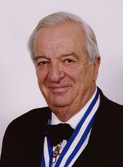
Joseph Rouleau
Doctor of Music
Friday, June 1, 3 p.m.
Schulich School of Music
Joseph Rouleau has spent a lifetime hitting just the right notes. One of Canada's most revered opera singers, he has delighted opera buffs around the world with his rich bass. Over four decades, he has sung every significant opera role from Mephistopheles to Judas. Although he has shared the stage with the likes of Joan Sutherland and Igor Stravinsky, Rouleau's virtuousity extends beyond the concert hall. President of the Jeunesses Musicales of Canada, Rouleau has taught voice at Université de Québec à Montréal since 1980. Rouleau was named an officer of the Order of Canada in 1977 and a grand officer of l'Ordre du Québec in 2004.
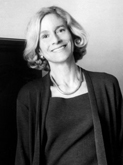
Martha Nussbaum
Doctor of Letters
Thursday, May 31, 10 a.m.
Faculty of Arts "A"
Not only is philosopher Martha Nussbaum hooked on the classics, she's made it her life's work to spark that same interest in others. One of the driving forces behind the revival of classical thought in the philosophical world, Nussbaum has published numerous important works praised for both their scholarly rigour and their accessibility to modern readers. Her expansive philosophical vision includes both ancient and contemporary perspectives toward such universal issues as justice, ethics, women's rights, human development, gender studies and love. Nussbaum is the Ernst Freud Distiguished Professor of Law and Ethics at the University of Chicago.
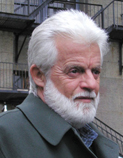
Christopher Terry Mosher
Doctor of Letters
Thursday, May 31, 2 p.m.
Faculty of Arts "B"
As with Edson Arantes do Nascimento, revered around the soccer world as Pelé, Christopher Terry Mosher is better known by his nom de guerre, Aislin. Canada's best-loved national lampoonist has been making people laugh—and think—for four decades now, chronicling the missteps and mishaps of our leaders in cheeky pen and ink. His images, in the Montreal Gazettte, from a pregnant, pre-1976 Olympics Jean Drapeau to a post-coital and René Lévesque asking a post-election Pierre Trudeau if the Earth moved, sometimes leave a more lasting impression than the actual events that inspired them. A long way from his days as a Quebec City sidewalk artist, Mosher is the recipient of two National Newspaper awards, a member of the Canadian News Hall of Fame and an officer of the Order of Canada.
Professors emeriti
Garth M. Bray, FRPC(C), CSPQ, FAAN
BSc (Brandon College), BSc (Med), MD (University of Manitoba)
Garth M. Bray arrived at McGill and the Montreal General Hospital in 1969, and was made a full professor in 1981. He has contributed immensely to the field of neurobiology with pioneering work that would later prove crucial to advancements in neural regeneration. Dr. Bray is known as a wise, patient and skilled neurologist whose high clinical standards have served as an example to countless students. He has served as a member and chair of a number of university and hospital committees, as well as in many important roles with the Canadian Congress of Neurological Sciences.
Michael D. Bristol
David J. Greenshields Professor Emeritus of English Literature
BA (Yale University), PhD (Princeton University)
During his 36-year career in McGill's Department of English, from which he retired in 2006, Michael D. Bristol distinguished himself as an astute scholar and a passionate, inspiring educator. In influential and groundbreaking books such as Carnival and Theatre, Shakespeare's America / America's Shakespeare and Big-Time Shakespeare, he has shed precious new light on the works of the Bard. His prowess—and popularity—as a teacher are attested to by the many awards he was won, such as the David Thomson Award for Excellence in Graduate Supervision and Teaching (1994), and the Louis Dudek Award for Excellence in Teaching from the Department of English Students' Association.
Thomas Ming Swi Chang, OC, FRCP(C), FRS(C)
BSc, MDCM, PhD (McGill University)
Thomas Ming Swi Chang is not only a world-renowned medical scientist and professor at McGill—that recognition dates back to when he was a student. It was in 1957 as an undergraduate that Chang invented "artificial cells," a discovery that would lead to a career that has included nearly 500 published papers, over 300 invited lectureships across the globe, 25 patents and patent applications assigned to McGill, as well as two Nobel Prize nominations. His ideas have been key to the study of nanotechnology, regenerative medicine, gene therapy, stem cell/cell therapy and blood substitutes. Dr. Chang is the founding and current Director of the Artificial Cells and Organs Research Centre, located at McGill.
Brian Collier
BSc, PhD (University of Leeds)
Brian Collier joined McGill's Department of Pharmacology in 1968 and became a full professor in 1978. A trusted and enthusiastic teacher who has helped launch the academic careers of a number of students, Dr. Collier has made significant contributions to the advancement of neuroscience. His pioneering discoveries have played a crucial role in our understanding of how nerve cells communicate with each other. Such achievements also led to his selection as chief editor for the Journal of Neurochemistry, one of the field's most important publications.
Margaret Lock, OQ, FRSC
Marjorie Bronfman Professor Emerita in Social Studies in Medicine
BSC (University of Leeds), PhD (University of California at Berkeley)
Internationally renowned medical anthropologist Margaret Lock has worked with great success over her 28-year career in McGill's Faculty of Medicine to build bridges between medicine and the social sciences. Her talent for synthesis is evident in her scholarly research, which centres on the relationships among emerging scientific knowledge, social variables, culture and politics. She has authored or edited 14 books and over 170 articles. Her visionary work has earned her such coveted awards as the Canada Council's Molson Prize and the Killam Prize for the Social Sciences. She is a fellow of the Royal Society of Canada and is currently a Trudeau Foundation Fellow.
George Alexander 'Alex' Whitmore
Samuel Bronfman Emeritus Professor of Management
BSc (University of Manitoba), MSc, PhD (University of Minnesota)
Internationally acclaimed and dedicated teacher George Alexander 'Alex' Whitmore arrived at McGill in 1969, was made a full professor in 1975 and was named the Samuel Bronfman Professor of Management in 1982. In his more than 35 years at McGill, he has also served as Associate Dean (Academic) of the Faculty of Management on two occasions, and was Director of the Management Science Research Centre for nine years. His research, which studies parametric and nonparametric interference for analyzing complex data, has contributed to a variety of fields ranging from agriculture to world finance to medicine.

